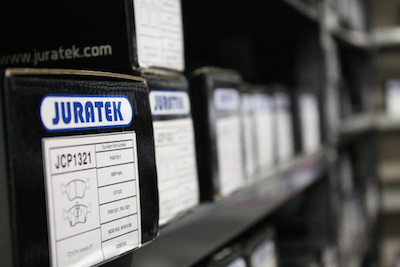 What do you do if the bank won’t lend to you? Adam Bernstein investigates alternative funding sources to keep the cash flowing.
What do you do if the bank won’t lend to you? Adam Bernstein investigates alternative funding sources to keep the cash flowing.
Bob Hope, the late actor and comedian, summed up quite accurately what most believe about bank lending practices: “A bank is a place that will lend you money if you can prove that you don’t need it.” While that may not be true in every instance, since the start of the 2008 financial crisis it certainly has been much harder to gain bank funding; it’s also the reason why the government has used devices such as quantitative easing and Funding for Lending to get cheap money out to the banks to, in turn, pass on as loans.
For the automotive industry, the government has a programme called Employer Ownership funding. In its second round, it offers extra support for training in the automotive supply chain. Eligible applicants involved in the manufacture and processing of components, tools and other production line equipment can seek funding of 50 percent of training costs. The minimum level of help is £40,000 and applications close at noon on February 6, 2015. However, there are other sources of funding that firms can apply for.
Peer-to-Peer lending
A relatively new entrant to the area of lending is peer-to-peer (P2P) lending. The practice revolves around a business placing a borrowing proposal online with various lending platforms for members, en masse, to subscribe to.
P2P is growing, much to the chagrin of the banks. NESTA, an innovation charity, reckons that the UK saw P2P lending of £62m in 2012 and £193m in 2013. Rebuildingsociety.com reckons that 24 percent (1.2m) of small firms will struggle to gain finance over the next year and 16 percent would consider applying for a P2P loan.
Loans vary in size from £2000 to £250,000 and can be taken over six to 60 months. As for costs, on top of the interest charged is normally an arrangement fee. Each of the lenders will have its own requirements as to whom they will lend to based on credit history and business structure. P2P loans generally need two years of trading history.
Asset-based lending
In simple terms, as the name suggests, this is a form of loan that is secured on an asset belonging to the business. But just as with a mortgage on a home or commercial premises, if the loan isn’t repaid then the asset is taken and sold to recover the debt.
This type of lending tends to be used when the normal routes for lending – secured or unsecured – are unavailable and the need for finance is more urgent, say to bridge cashflow or to fund working capital. Consequently, the interest rates charged are often higher while the loan is secured on property, machinery, equipment, the sales ledger or inventory. It’s nevertheless quite popular and the Asset Based Finance Association website offers finder tools.
Invoice factoring
This is a subset of asset-based finance where, in essence, borrowers gain up to 85 percent of invoice values very quickly, often within 24 hours. Once the invoice is finally settled by the customer the balance is paid over less fees and any interest charged. There are two types of service: factoring and invoice discounting service.
An advantage of these services is that the services can include facilities such as credit checking of customers, sales ledger maintenance, credit control and bad debt insurance cover. But on the negative side, invoices queried or not settled can affect the amount the firm can draw against. The same applies where invoices are issued to unapproved customers.
The two services differ in that with factoring the ‘lender’ takes over the firm’s sales ledger and all credit control collections including the issuing of statements/letters, telephone calls and commencement of legal procedures. Customers pay the third party supplier direct and this means that they know of a firm’s financial arrangements.
Invoice discounting is similar, but the borrower keeps full control of the sales ledger and privately receives its advance; it’s more attractive as customers don’t need to know about any third party involvement in the firm’s finances.
As for costs, the daily interest rate ranges between 1.5 to 3 percent over base rate and the fee for the service can be between 0.5 and 3 percent of turnover.
Business angels
Anyone with a passing interest in the BBC’s Dragons’ Den will have seen countless entrepreneurs pitching ideas to the five wealthy investors. What viewers are witnessing are business ‘angels’ at work, albeit in a highly edited and pressurised TV environment. The idea is simple enough – wealthy investors give money and possibly time in exchange for equity – a share – of the business.
The majority of the UK’s 18,000 angels are probably as far from being angelic as it is possible to imagine, as they are almost all businessmen in the latter part of their working lives who have made their money elsewhere. Most work in a syndicate since more than half – 56 percent – of investments lose money according the UK Business Angels Association; the syndicated method of investment allows angels to spread their risk.
The typical investment they make is between £10,000 and £750,000 but is on average £42,000. Business angels tend to look for early stage or high growth businesses and their total investment a year is, says UK Business Angels Association, £850m – a sum that makes them a worthy target for any borrower.
grants and loans
One huge resource that many take little account of is the government’s business finance and support finder. It’s a very simple, yet effective, filtering tool that allows users to drill down to the appropriate programmes for a given industry sector, stage in the commercial cycle, business structure, type of assistance and of course, location.
Included in the list is Business Loan – Midlands (which offers between £10,000 and £100,000 in business loans to firms with less than 249 employees); and Better Business Finance (which helps businesses reach out to finance from approved lender of between £1 and £20m).










Go to comments